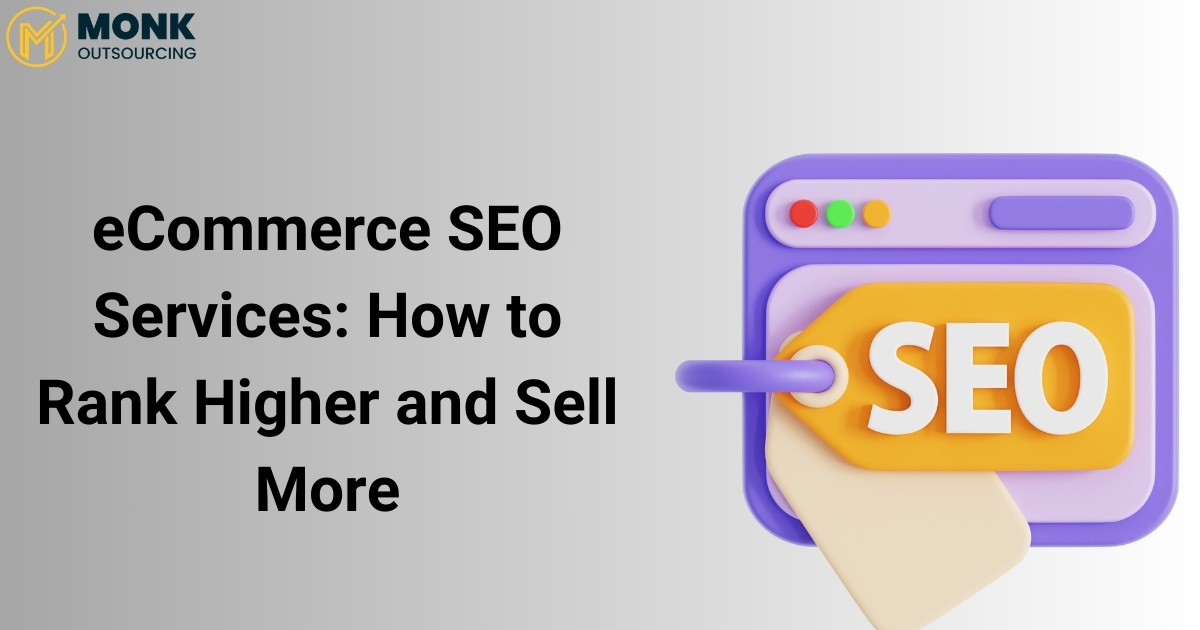
In today’s digital world, having an online store isn’t enough—you need to optimize it for search engines to attract customers and boost sales. That’s where eCommerce SEO and eCommerce SEO services come in. This guide answers key questions about eCommerce SEO, its importance, best practices, and how to choose the right service provider for your business.
What is eCommerce SEO?
eCommerce SEO refers to optimizing an online store to improve its visibility in search engine results. It involves various techniques such as keyword research, on-page optimization, technical SEO, and link building to ensure that your website ranks higher for relevant search queries. The goal is to drive organic traffic to your site, improve the user experience, and increase conversions.
Why is eCommerce SEO Important for Online Businesses?
-
Increases Visibility: A well-optimized eCommerce website ranks higher on Google and other search engines, making it easier for potential customers to find your products.
-
Drives Targeted Traffic: eCommerce SEO attracts users who are actively searching for products similar to yours, increasing the chances of conversions.
-
Enhances User Experience: SEO techniques such as fast loading times, mobile optimization, and easy navigation improve the overall user experience.
-
Reduces Paid Advertising Costs: Unlike PPC campaigns, organic traffic generated through eCommerce SEO is free, offering long-term benefits.
-
Builds Brand Credibility: Websites that appear at the top of search results are often perceived as more trustworthy and authoritative.
How Can eCommerce SEO Services Improve My Website’s Performance?
Professional eCommerce SEO services help businesses optimize their websites effectively. Here’s how:
-
Comprehensive Keyword Research: Experts analyze search trends and target high-converting keywords.
-
On-Page Optimization: They enhance product pages, meta descriptions, headers, and images for better search rankings.
-
Technical SEO Improvements: Services include fixing broken links, optimizing site speed, and ensuring mobile-friendliness.
-
Content Marketing: Creating high-quality blog posts, product descriptions, and guides to engage visitors and improve rankings.
-
Link Building Strategies: Establishing backlinks from authoritative websites to boost domain authority and credibility.
-
Conversion Rate Optimization: Improving site design and functionality to encourage more purchases.
What Are the Best Practices for eCommerce SEO?
-
Conduct Thorough Keyword Research: Identify and use high-intent keywords that match customer search queries.
-
Optimize Product Pages: Include relevant keywords in product titles, descriptions, URLs, and image alt texts.
-
Enhance Site Structure: Use a clear, logical hierarchy with well-organized categories and subcategories.
-
Improve Page Load Speed: Optimize images, enable caching, and minimize unnecessary code to enhance website performance.
-
Ensure Mobile Friendliness: With more users shopping via mobile devices, having a responsive design is crucial.
-
Use Structured Data Markup: Implement schema markup to enhance product listings in search engine results.
-
Develop a Content Strategy: Regularly publish blog posts, guides, and FAQs to attract and engage visitors.
-
Acquire High-Quality Backlinks: Partner with authoritative websites to improve domain authority.
How Do I Choose the Right eCommerce SEO Service Provider?
When selecting an eCommerce SEO service provider, consider the following factors:
-
Proven Track Record: Look for agencies with a history of delivering successful SEO campaigns.
-
Industry Experience: Choose a provider with experience in your specific eCommerce niche.
-
Transparent Pricing: Avoid companies with vague pricing structures; opt for those that offer clear, upfront costs.
-
Customized Strategies: Ensure the agency tailors its SEO strategies to fit your business goals.
-
Client Reviews & Testimonials: Check feedback from previous clients to gauge reliability and effectiveness.
-
Comprehensive Reporting: A reputable agency should provide regular reports detailing SEO performance and progress.
What Are the Common Challenges in eCommerce SEO?
-
Duplicate Content Issues: Many eCommerce sites have similar product descriptions, which can harm rankings.
-
Slow Loading Speeds: Large images, excessive scripts, and poor hosting can reduce site speed and affect user experience.
-
High Competition: Standing out among thousands of competitors requires a well-planned SEO strategy.
-
Mobile Optimization Challenges: Many businesses struggle to create fully responsive and mobile-friendly websites.
-
Managing Technical SEO: Issues like broken links, improper redirects, and indexing errors can negatively impact rankings.
-
Keeping Up with Algorithm Updates: Search engines constantly update their algorithms, requiring continuous SEO adjustments.
Conclusion
Investing in eCommerce SEO and professional eCommerce SEO services can significantly enhance your online store’s visibility, attract more customers, and boost sales. By following best practices, addressing common challenges, and choosing the right SEO partner, your business can achieve sustainable growth in the competitive eCommerce landscape.
If you’re ready to optimize your online store for higher search rankings and increased conversions, consider leveraging expert eCommerce SEO services today!